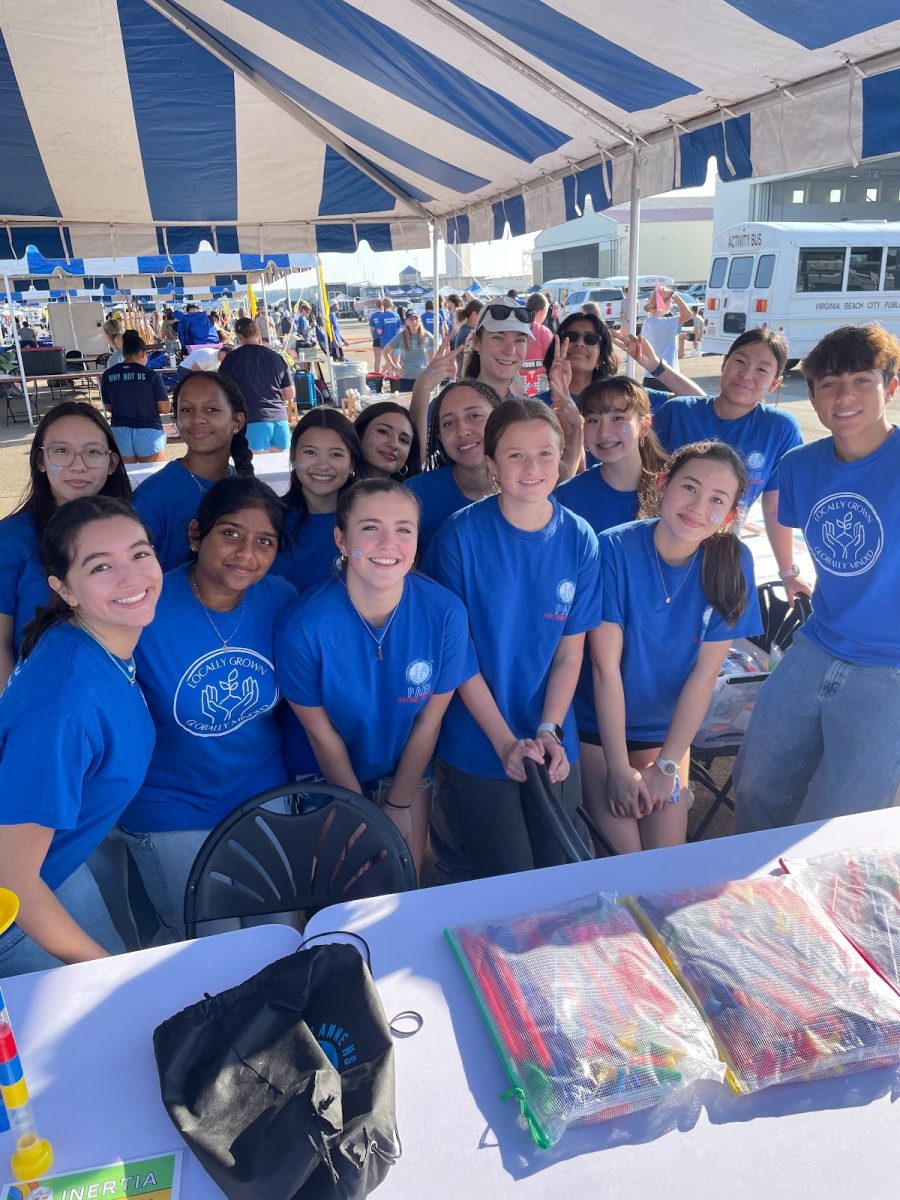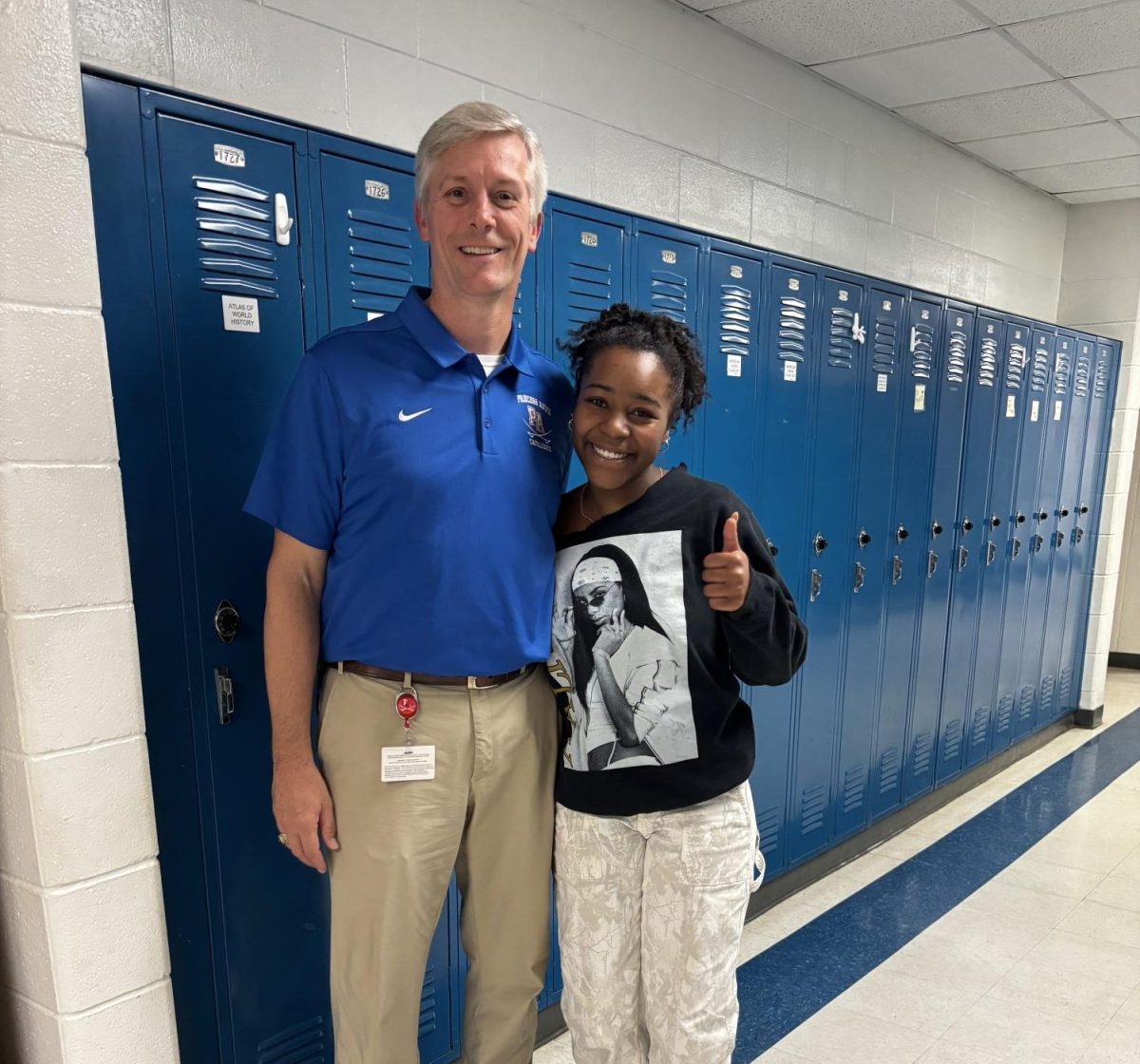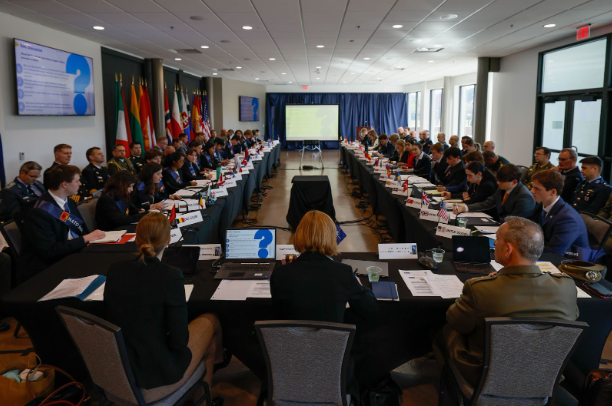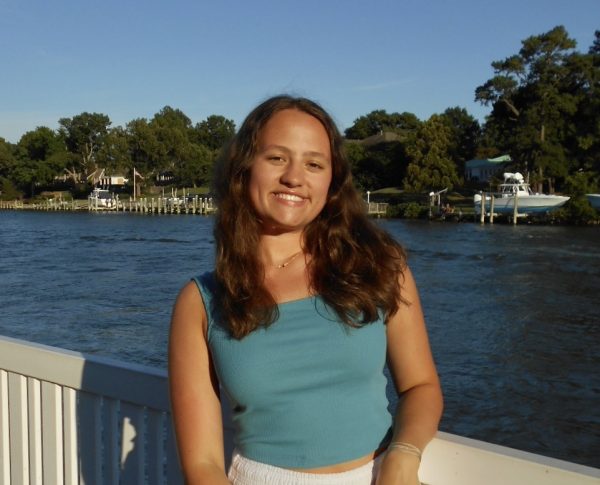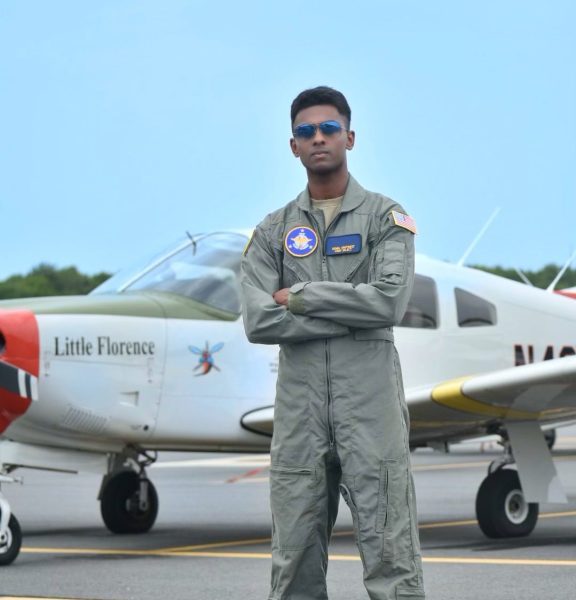
While most teenagers spend their high school years learning how to drive, senior Kenul Vantwest instead spent his past summer at the Naval Summer Flight Academy training to earn his pilot’s license.
The Commander Naval Air Forces (CNAF) Flight Academy is a selective summer program available to 11th and 12th grade students nationwide who are members of their school’s JROTC program. The 28 students who qualify for the program spend eight weeks earning enough flight experience to achieve their FAA Private Pilot’s license, legally certifying them to own and operate a plane.
Vantwest has been a member of PA’s NJROTC program since his freshman year and is now Executive Officer. He explains he has always been interested in a career in naval aviation and believed the academy was a great opportunity. The application process began in September of 2023, Vantwest describes, and involved requirements similar to that of a college application, along with a Navy physical test. Vantwest received his acceptance in December of last year and the program started back in June.
Vantwest and his fellow cadets stayed at Delaware State University in Dover, Delaware for the duration of the program. A typical day was spent between flight training in the morning and classes at the university in the afternoon. One of the largest benefits of the program Vantwest emphasizes was that he and all of the cadets received the training to earn their license at no cost.
“A [pilot’s] license is something that’s really expensive and takes a lot of time to earn,” says Vantwest. “Without the scholarship I wouldn’t have been able to do it.” The program’s cost for a single student is around $28,000, including tuition and room and board for the university, as well as the cost of flight school.
The cadets coming from all around the country had varying levels of flight experience when they first began the program. Vantwest describes his roommate already had 20 hours of flight training and had flown solo before entering, while the first time some others had even been on a plane was on their trip to the academy. Vantwest found himself somewhere in the middle. “I had a decent bit of experience with flying, but I never really started working towards my license through the full pipeline,” he describes. His parents had paid for a few lessons, but it was “nothing too serious.”
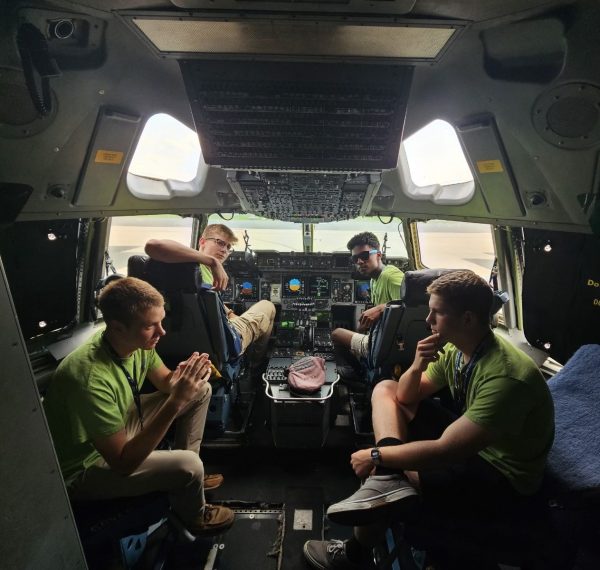
Besides the scholarship he received, the other incredibly beneficial part of the academy Vantwest emphasized was how quickly they were able to earn their license. “The whole program kind of made us go from zero to hero,” he explains. “It was extremely fast paced. We were flying every single day of the week.” Eight weeks was a very short timeframe to prepare to earn your license, according to Vantwest, as interested people usually prepare for almost a year.
The cadets’ days would consist of flight school in the morning until around noon, and then their classes would begin after a lunch break and last until around 6 p.m. Vantwest explains that he would usually have reading to do given by an instructor before a lesson about the practical skills they would do while in the plane. “Then you go into a flight with the instructor, and you fly around with him. But as the flight progresses, kind of like a lesson in school, he’ll take his hands off a little bit and you start doing it,” says Vantwest. Many of the instructors were alumni of Delaware State who were professional flight instructors working to a career in commercial aviation, he describes.
Their classes were focused around aerospace, including aviation mechanics and physics. He explains he earned five college credits after his eight weeks. “There was a lot of studying and it was very accelerated,” recalls Vantwest.
As the weeks continued, Vantwest explains he and his roommate essentially got to share a plane every day, and the two of them would go out and fly without an instructor. Vantwest and the other cadets most regularly flew Piper Warriors, a “standard, general aviation plane,” describes Vantwest, as well as an Extra 300, an acrobatic plane.
In preparation for their final exam, Vantwest explains a lot of their curriculum included many cool experiences to ensure they were ready. “For example, we landed in fields and dirt runways. Obviously, taking your plane and landing it is already kind of a shock in itself, and landing in a field is pretty nerve wracking,” says Vantwest.
Additionally to prepare, the cadets traveled on “cross country” trips of over 100 miles in one direction. Vantwest recalls they traveled all around the Mid-Atlantic area from Delaware, to Pennsylvania, New Jersey and Maryland. “Night flying” was also a skill that the cadets frequently practiced, according to Vantwest.
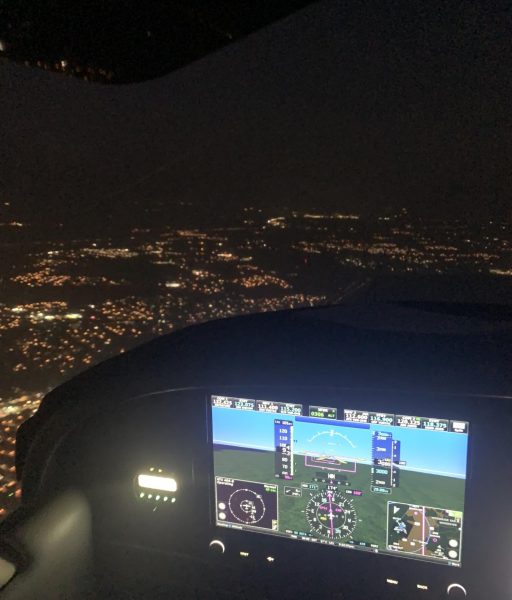
As the cadets practiced their requirements, they were tested on what they had learned. “The flight training was broken up into three stages, so at the end of each stage, there would be a major flight check. They would bring in a higher level instructor and you’d fly as if he wasn’t there and he’d evaluate you,” explains Vantwest. “That culminated in the final FAA test, which was pretty nerve-wracking. You get tested on everything you’ve learned as a private pilot.” This included different types of maneuvers, landings, and safety procedures, as well as long-distance navigation.
Vantwest passed the exam and can legally fly a plane, meeting certain standards. “My license is [for] all single engine, land aircraft. What that means is any single engine airplane, that is not a seaplane, I’m able to fly. So it’s a pretty broad rating.” With his current license, he is now eligible for two other add-ons to his license if he takes additional classes.
Vantwest explains his experience at the academy reinforced his interest in aviation. “After having gone through the whole process there’s zero doubt in my mind that I want to be a military aviator, and it’s a great stepping stone for becoming a military pilot,” says Vantwest. He describes the program as an investment for the Navy, as he and his fellow cadets will be ahead of the game when they likely continue to pursue Naval aviation.
These fellow cadets were what made the program truly great, according to Vantwest. “They’re people who are the same students of the caliber that I am, who are also working towards the same goal. So they’re people that have the same background as you, but who are also so different and from completely different parts of the country.” Vantwest explains that all of his fellow cadets will likely pursue the same path as him, so “these are people I will be serving with in the future.”
Vantwest hopes to attend the Naval Academy for college, deeming the Summer Flight Academy a “great first step to a Naval career.”
Lieutenant Commander Jason Houser, an instructor for PA’s NJROTC program, has taught Vantwest in his Naval Studies classes for the past four years. He emphasizes how valuable the program is and how much Vantwest gained from it as a high school student. “[Vantwest] is one hundred percent a self-starter…if he sees something and wants it, he works hard, he does the research and he invests completely. With his level of intelligence and motivation, he makes things happen.”




